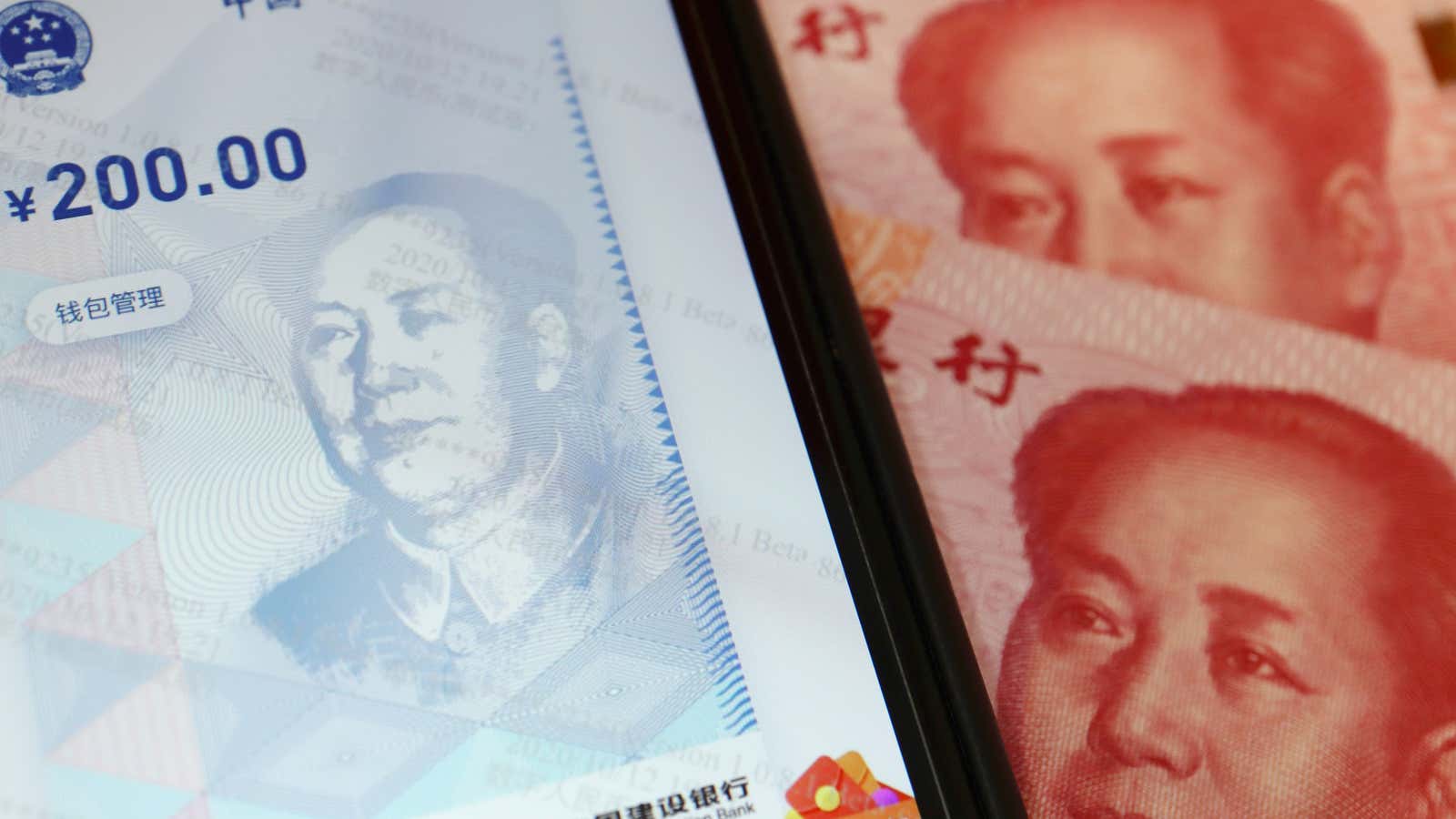China’s digital yuan is introducing new functions to prove it can work just as well as paper currency—as well as offer the online convenience of the country’s two digital payment giants Alipay and WeChat Pay.
The government will give out 20 million yuan ($3 million)’s worth of the virtual money to citizens in the eastern Chinese city of Suzhou this Friday (Dec. 11) via a lottery, in the largest experiment with it to date. The money will be distributed through 100,000 “red packets” given to users who download the digital yuan wallet through special links as the app has not been made available publicly.
China has been developing a digital version of its sovereign currency since 2014, hoping that it will offer policy makers more insights into consumer spending, give them greater control over the money supply, and perhaps even boost the yuan’s use overseas (that one’s a long shot). Analysts at Goldman Sachs estimate it could have a total potential user base of 1 billion people in a decade.
A similar trial was held in the southern city of Shenzhen in October in which around 10 million worth of digital yuan was distributed, but this month’s trial introduces a key new feature: “dual offline payment.” Similar to mesh network messaging apps, it will allow users to pay others simply by tapping their phones that have installed the digital yuan wallet together, even when their phones are not connected to the internet, according to state-owned Xinhua news agency (link in Chinese).
Some 1,000 winners of the lottery in Suzhou will be selected to experience a version of the digital yuan wallet that supports this function, and last month, Chinese telecom giant Huawei announced that its new Mate 40 range of smartphones are equipped with default digital yuan wallets supporting the offline payment feature.
Secondly, JD.com, a rival to Alibaba, will become the first e-commerce site to accept the digital currency, allowing users to purchase items on the platform. (In the earlier pilot, specific offline merchants were signed up to accept the currency.)
China’s central bank has said that the virtual currency would not create direct competition between the digital yuan and Alipay and WeChat Pay, two mobile wallets that dominate China’s digital payments. The digital yuan will serve merely as money, while the two payment tools are “wallets” for the currency, according to Mu Changchun, the head of the research institute for digital currency at the People’s Bank of China.
Yet it’s also become clear that China’s government is concerned about the sway of the private wallets, and fintech giant Ant Group, the owner of Alipay, in particular. The fact that users can now buy goods online via the digital yuan wallet has led some to predict that competition will definitely ensue. It might seem hard for the new state-backed wallet to compare with Alipay and WeChat Pay, two “super apps” that were able to become payment giants by allowing users to access or pay for a range of essential life services. But the offline payment function, as well as expanding online payment options, could potentially encourage users to gravitate to the state-controlled wallet.
“The offline payment function means the digital yuan can function essentially as the paper currency as it does not require the use of the internet, which is a major difference between the virtual money and Alipay and WeChat Pay…which payment tool can grab the most users will come down to which platform can provide users the most benefits,” said Raymond Yeung, chief economist for Greater China at ANZ Bank.
